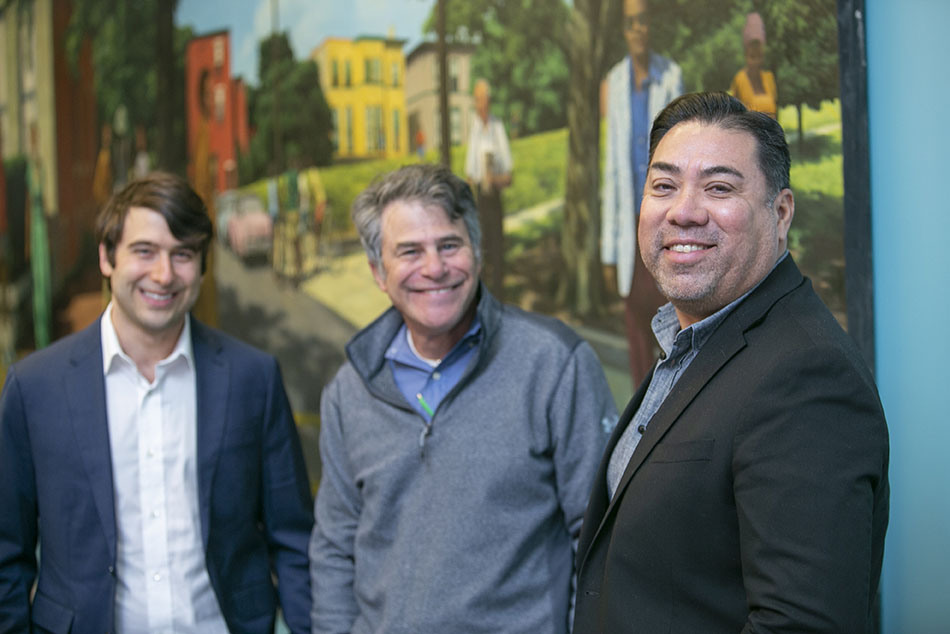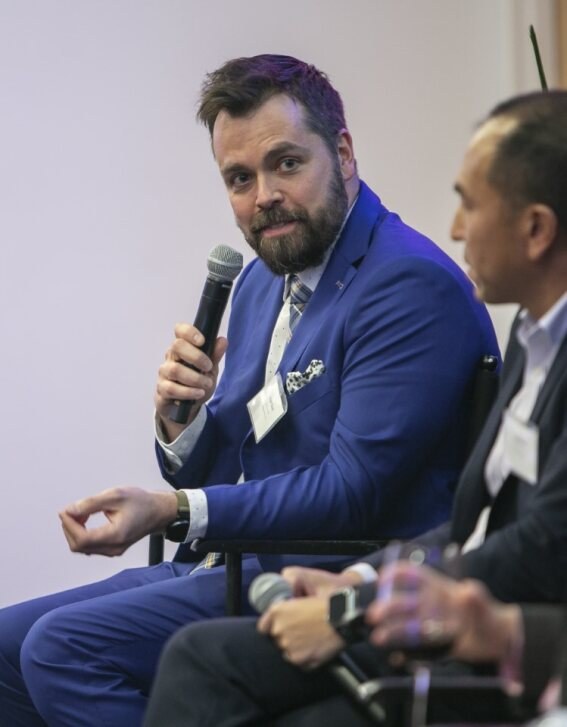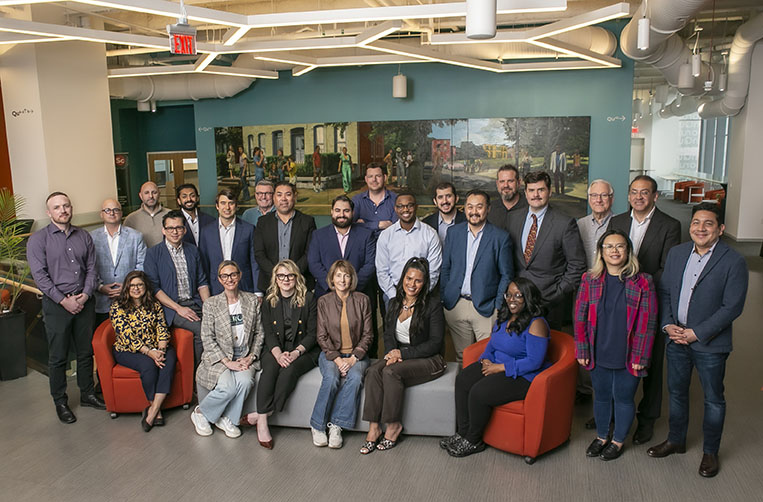It’s the Capital Readiness Program (CRP) run by the Science Center, and if last year’s CRP outcomes are any indication, these companies are poised to raise millions if they soak in five days of critical guidance, real world case studies, and unvarnished feedback from industry experts and investors – not to mention the daily stress tests that often land in the participants’ inboxes in the late hours.
Last year, the three CRP cohorts collectively raised $13.8 million – more than $1 million a month – for their health tech startups, despite challenging market conditions. Here’s a taste of what our most recent cohort learned, how assumptions were challenged, and why hearing hard truths will save time and money in the long run.

Shed the founder mentality; become a CEO
It was a group of founders who ascended on Philadelphia from around the country for the Capital Readiness Program, but the investors-in-residence challenged them to consider themselves CEOs first. Why?
They explained that founders typically prioritize the vision and mission of the startup – but that isn’t enough when speaking to investors about why they should invest in a fledgling company. Thinking like a CEO involves a more strategic and organized approach. Investors need to see more than a sleek pitch deck: they want hard numbers and concrete plans that spell out future profit and stability.
Garry McBerryhill, US Market Lead at Raven Indigenous Capital Partners, was one of the Investors-in-Residence for Cohort 4 - and his experience and advice proved invaluable.
“Founder thinking and CEO thinking are very different, and startup leaders have to switch between them constantly and quickly,” notes McBerryhill. “CEOs don't just shape their companies' vision and strategy, they also manage the ‘boring’ stuff like HR policy, insurance coverage, information security, and all the other things that can wreck any business when it's not handled correctly.”
While both roles are essential for a startup’s success, adopting a CEO mindset is critical for gaining the confidence of sophisticated investors.
Among the benefits of CRP is having the ability to engage in candid conversations with these investors.
“Here, we get to talk to the investors in a safe space,” says Capital Readiness Program participant and Alpine Health founder Humberto Lee. “They’re very candid with their responses; they tell us the things that we would hear during the sales calls.”
Don’t assume your priorities are their priorities
Customer discovery is essential for creating a viable product. CRP participants heard from industry experts including Nate Gach, Director of Innovation at Independence Blue Cross (IBX). IBX insurance currently serves over 3 million people – in other words, exactly the type of organization many of these health tech startups would be pitching to.
Nate recalled a health-monitoring wristwatch that just needed a simple relay device to be plugged into an outlet to work. The technology seemed ideal for improving health outcomes in lower-income communities where people don’t always have their own WiFi access.

Yet when the deploying company checked back in on the devices, it turns out no one was using them. Why? Many households only had one working outlet – so if they had to choose between using the wristwatch or using their refrigerator, the watch sat unopened on the kitchen table.
Even the most well-intentioned innovations can fail if they do not align with the daily realities and needs of the people they are intended to help.
“If you want to just sit back, fly off the seat of your pants, and hope for the best, I would not go to CRP - because it’s going to uncover a lot of vulnerabilities, blind spots, and weak spots in you,” cautions Last Minute co-founder and CEO Leo Dassa. “But if you want to put on your big person pants, be an adult, and have the startup become an actual business, then this is the first place to start.”
Prepare for the unexpected – And develop a strategy
Throughout the week, CRP Investors-in-Residence walked founders through the various problems they’ve encountered with startups in the past. A common theme was personnel issues, whether that’s dealing with unpaid interns asking for equity – or issues arising between co-founders.
Like marriages, many co-founder situations don’t last forever. Founders should have a plan from the beginning so that if one person wants to exit the project later, there is a clear framework for transitioning responsibilities, equity ownership, and decision-making authority.
And pragmatically – if founders are looking for first-round equity – investors like to see that they’ve planned for common contingencies that could otherwise disrupt their forward momentum.
“I am so grateful to be sitting in a room with these people. Yeah, I’m giving up a week [to be here], and it’s a lot of work - but I’ve got four things that people have pointed out to me, that if they hadn’t been pointed out to me, were going to cost me two weeks in the future - and they were going to catch me by surprise,” notes Marvin Barron, co-founder and CEO of Pearl Antigenics. “So as best as I can tell if I do that math, I just got seven weeks of my life back.”
Investor led and peer recommended: The Capital Readiness Program
When polled, one of the top reasons participants apply to the Capital Readiness Program is a referral from someone who was part of a previous cohort. So why are so many founders recommending CRP to their peers?
When asked about his experience with Capital Readiness, Founder and CEO of Syntr Health Technologies Ahmed Zobi had this to say:
“A curriculum like this where they put you face to face with investors and allow you to grow, to modify, to learn from each other - I think it’s a unique proposal and not that many people are doing it. I haven’t heard of it until experiencing it through here.”

Leo Dassa agrees.
“For a one-week program you’d think okay, you kind of just pencil-push or whatever,” he says. “But people here really care about the participants, and they’re spending a lot of time and effort with them - and even though they may or may not invest in you, they still treat you like they want to actually see you succeed.”
Several participants, in fact, were shocked by how comprehensive the 5-day program was.
“I’m pleasantly surprised that the program was more meaty than I thought it was going to be,” explains Richard Russo, President and CEO of Endomedix. Russo came to the program with prior experience, having successfully led two other startups before his current endeavor. “I came with the trepidation that maybe this was too junior for me and would be kind of empty, general stuff. It has instead been very concrete and tactical. So, I would recommend this to other people.”
Finally, Percy Founder and CEO Conner Herman points out that the program covers knowledge crucial for entrepreneurial success.
“Everything they’re telling us is essential to know, and you’ll learn it some point either by making mistakes that are really costly down the road - or you’ll have a better foundation to prepare yourself now and prevent those mistakes,” she says.
The Science Center’s Capital Readiness Program is unique in the space it occupies. It’s not about selling products or services – service providers aren’t allowed to pitch to the startups. The Science Center’s goal is to build a better, more diverse life science ecosystem by connecting startups to the resources and people they need to thrive – and encourage up-and-coming entrepreneurs to take advantage of the extensive resources Philadelphia has to offer.

Know someone who might be a good fit for the Capital Readiness Program? Applications close Monday, April 22nd! Apply here



